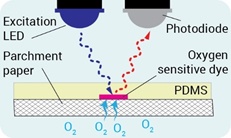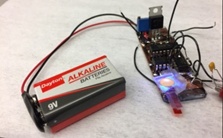
There is increasing demand for electronic systems that are flexible and have the ability to sense, process, take action, and communicate with other devices and networks. Important applications include human performance monitoring devices such as “smart” bandages for medical treatment and asset and environmental monitoring systems
However, current devices are limited by the performance of flexible electronics, typically comprised of simple devices printed on polymer films or other flexible materials, and by the traditional packaging of semiconductor chips, which are bulky and inflexible. Flexible hybrid electronics (FHE) is an emerging technology category that combines thin semiconductor chips and printed devices on flexible substrates, enabling high performance systems that can be worn on the body, integrated into clothing or other materials, or built into structures such as vehicles and infrastructure.

Wearable devices can monitor and record real-time information about one's physiological condition and motion activities. Wearable sensor-based health monitoring systems may comprise different types of flexible sensors that can be integrated into textile fiber, clothes, and elastic bands or directly attached to the human body. The sensors are capable of measuring physiological signs such as:
Continuous monitoring of physiological signals could help to detect and diagnose several cardiovascular, neurological and pulmonary diseases at their early onset. Also, real-time monitoring of an individual’s motion activities could be useful in fall detection, gait pattern and posture analysis, or in sleep assessment.

| Phone: | (310) 263-3060 |
|---|---|
| Contact CMTC: | Contact CMTC Here |
| Address: |
California Manufacturing Technology Consulting® (CMTC) |